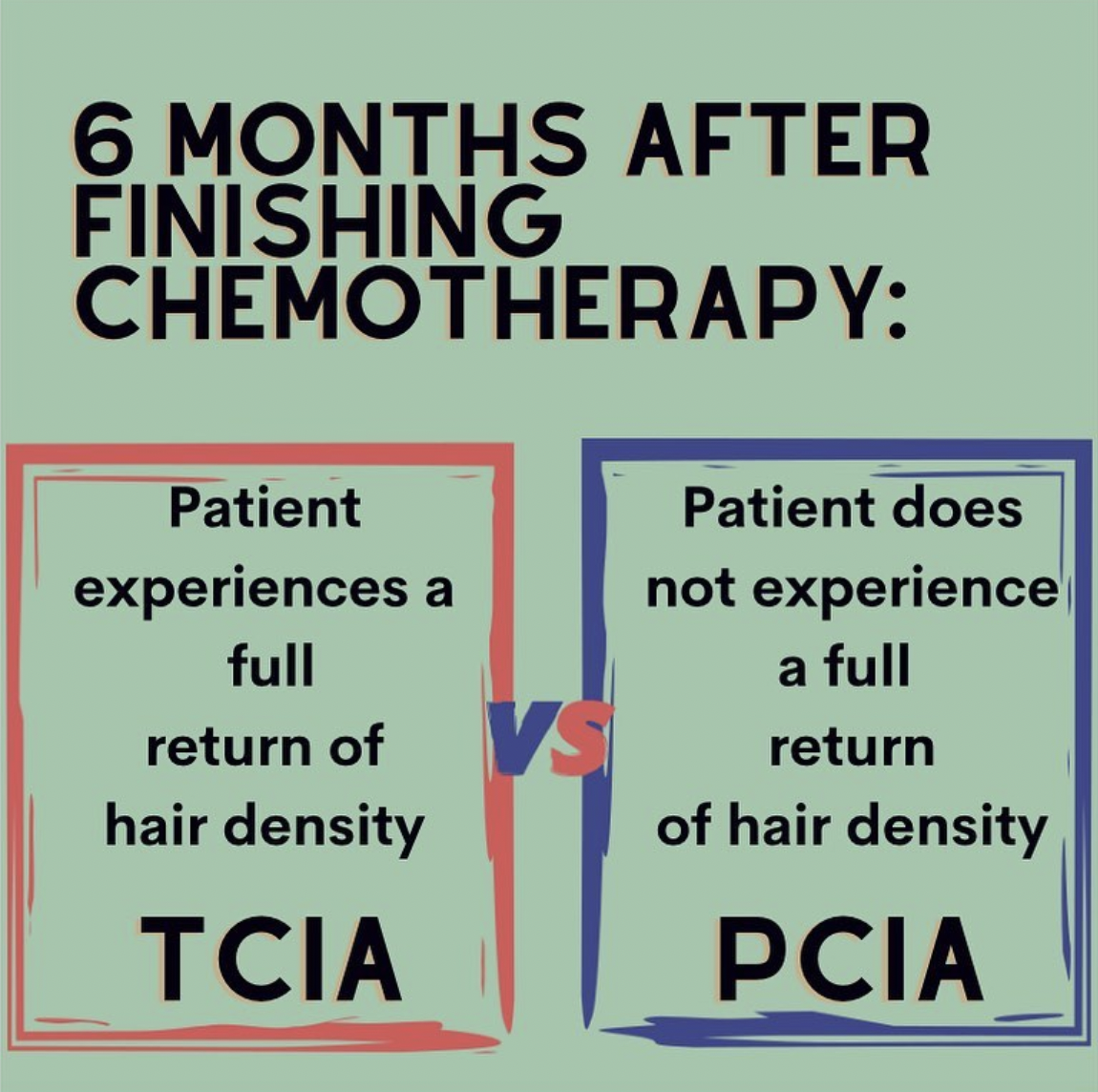Persistent Chemotherapy Induced Hair Loss (PCIA)
Temporary vs Persistent Hair Loss After Chemotherapy
Hair loss after chemotherapy is common. About 60-80 % of patients will develop hair loss. Some chemotherapy agents are more likely to cause hair loss than others.
Many cancer patients find that the hair grows back fully after chemotherapy has finished. For these patients, hair loss starts 2-3 weeks after the first dose of the chemotherapy treatment. Once the treatment has stopped, hair regrowth occurs and by month 6 it will be very obvious that hair density is fully returning. Of course, the hair may be short in its length - but the density will be high.
A patient with this story would be said to have experienced temporary chemotherapy induced alopecia (TCIA).
Not all cancer patients undergoing chemotherapy have full regrowth
Not all cancer patients undergoing chemotherapy have this story. Some patients report that even though the cancer chemotherapy finished more than 6 months ago, the hair density does not return to the same density as it was before the patient underwent chemotherapy. Many of the patients with a failure to regrow back their hair to the same density have a phenomenon known as persistent chemotherapy induced alopecia (PCIA). This is defined as a failure to experience full hair regrowth by month 6 following the end of chemotherapy treatment.
Patients with PCIA do not all have the same pattern of hair loss or appearance. There are several patterns of hair loss including a diffuse pattern, a pattern that resembles female pattern hair loss, a male pattern, a scarring pattern and an erosive pustular variant.
Certain cancer drugs are associated with an increased risk of a patient developing PCIA including taxanes (paclitaxel, docitaxel), doxorubicin, cyclophosphamide, fluorouricil, thiotepa, cisplatin and busulphan.
Treatment may improve density in some patients and options include topical minoxidil, oral minoxidil, laser therapy, and as well as other potential therapies too. Scalp cooling might prevent some cases of PCIA but more studies are needed in this area.
This article was written by Dr. Jeff Donovan, a Canadian and US board certified dermatologist specializing exclusively in hair loss.

